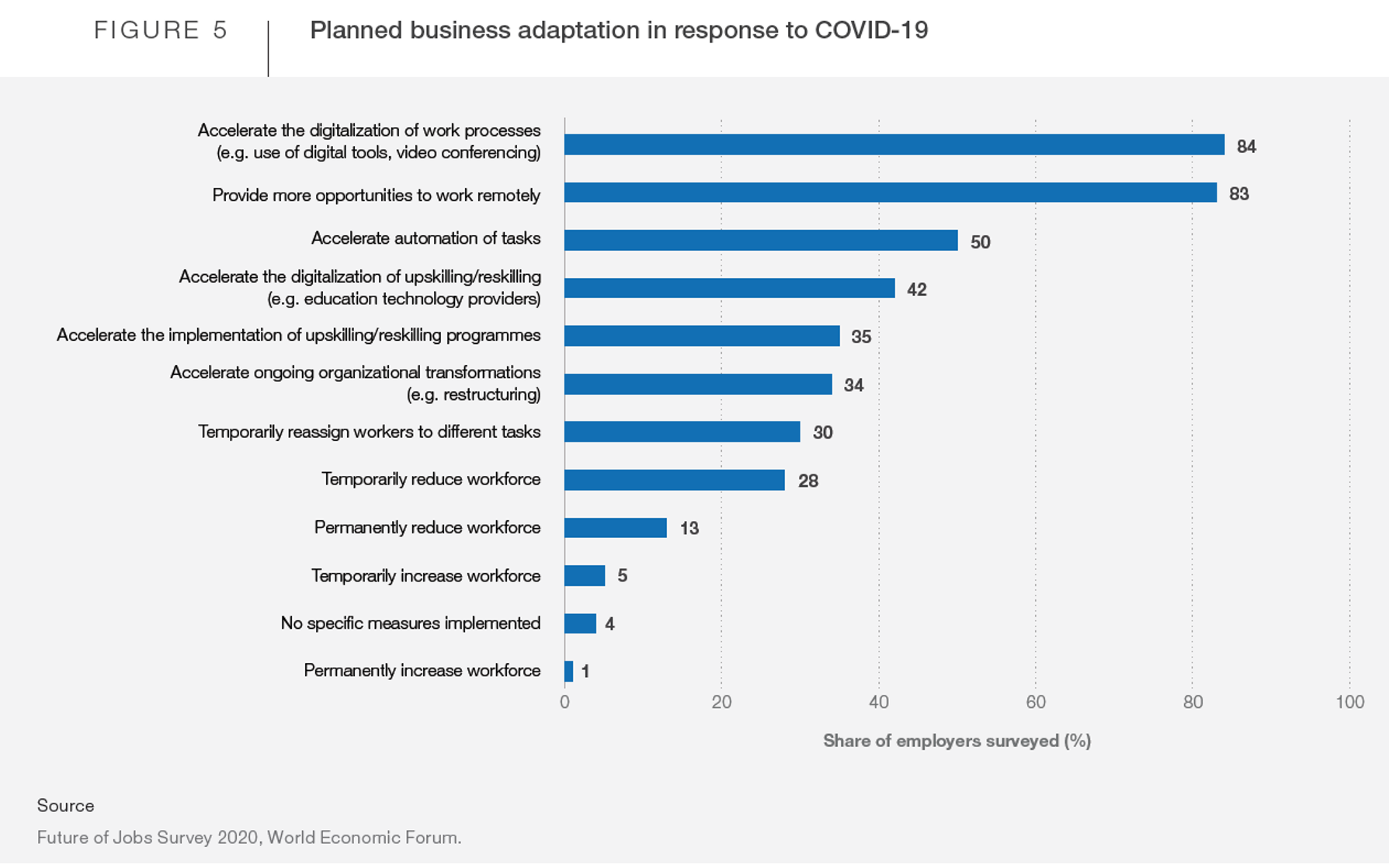
94% of business leaders report that they expect employees to pick up new skills on the job, are you ready?
The world is changing, and since the pandemic, we have a new reality, in which online life took part in everything we do.
Now, we should be productive and savvy. There is no more “I don’t know how”, the internet has all the answers, or, at least, all the places to find them.
Are you surfing the wave?
According to figures revealed in the Future Jobs Report by the World Economic Forum, the skills gaps continue to be high as in-demand skills across jobs change in the next five years.
We would like to share with you some highlights of the WEF report that are key to understand the evolution of companies, employers, and employees:
- The top skills and skill groups which employers see as rising in prominence in the lead up to 2025 include groups such as critical thinking and analysis as well as problem-solving, and skills in self-management such as active learning, resilience, stress tolerance, and flexibility.
- On average, companies estimate that around 40% of workers will require reskilling of six months or less and 94% of business leaders report that they expect employees to pick up new skills on the job, a sharp uptake from 65% in 2018.
- The future of work has already arrived for a large majority of the online white-collar workforce. Eighty-four percent of employers are set to rapidly digitalize working processes, including a significant expansion of remote work—with the potential to move 44% of their workforce to operate remotely. To address concerns about productivity and well-being, about one-third of all employers expect to also take steps to create a sense of community, connection, and belonging among employees through digital tools, and to tackle the well-being challenges posed by the shift to remote work.
- Online learning and training is on the rise but look different for those in employment and those who are unemployed. There has been a four-fold increase in the numbers of individuals seeking out opportunities for learning online through their own initiative, a five-fold increase in employer provision of online learning opportunities to their workers and a nine-fold enrollment increase for learners accessing online learning through government programs. Those in employment are placing a larger emphasis on personal development courses, which have seen 88% growth among that population. Those who are unemployed have placed greater emphasis on learning digital skills such as data analysis, computer science, and information technology.
- The window of opportunity to reskill and upskill workers has become shorter in
the newly constrained labor market. This applies to workers who are likely to stay in their roles as well as those who risk losing their roles due to rising recession-related unemployment and can no longer expect to retrain at work. For those workers set to remain in their roles, the share of core skills that will change in the next five years is 40%, and 50% of all employees will need reskilling (up 4%).
- Despite the current economic downturn, the large majority of employers recognize the value of human capital investment. An average of 66% of employers surveyed expect to get a return on investment in upskilling and reskilling within one year.
- On average, employers expect to offer reskilling and upskilling to just over 70% of their employees by 2025. However, employee engagement into those courses is lagging, with only 42% of employees taking up employer-supported reskilling and upskilling opportunities.

Take action and become in the best version of you! Get the advantage of all the offers that may help you to improve your skills. There is a huge offer online that will suit your expectation and give you the best option degree.